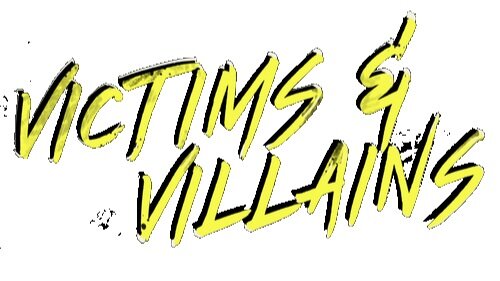Horror feels like a tree in some regards the way its roots find themselves in the depths of other genres. There have been horror movies that make us laugh like Elvira: Mistress of the Dark, Evil Dead II, Zombieland, and Psycho Goreman. We’ve seen horror movies which embrace the documentary style to convey their stories. Films like The Blair Witch Project, The Poughkeepsie Tapes, and V/H/S come to mind, the latter of which also draws from entirely other subgenres. V/H/S is the perfect example of the blending of multiple genres. For those that have never seen it or have never heard of it, V/H/S is basically the found footage subgenre with an anthology twist to it.
Then you look at something like the recent Fear Street trilogy and you find a singular story that blends multiple genres, all with the singular purpose of telling one story. The story moves through time showing affection to sub genres like the slasher boom of the late 70s and early 80s, along with its mid 1990s resurgence. It’s a complex story that has a love story at its core that also manages to comment on how the genre has treated women throughout the years. When viewers arrive at its third and final entry we are brought back to the age of the Salem witch trials.
Incidentally, this is also where we find ourselves today, looking to the genre of folk horror. The documentary, Woodland Dark and Days Bewitched, examines the roots of the folk horror genre through multiple mediums. It also touches on cultural impact, the folklore of other countries, and much more. When it comes to documentaries on the horror genre or things within it, I feel like it should come with a slight warning: this film boasts a three hour run time. In the vein of Never Sleep Again or Camp Crystal Lake Memories, Woodland Dark engrosses its audience. It speaks on everything from how certain folklore legends have begun to how the early works of 18th century authors have shaped the genre to be what it is today.
The thing I found most surprising about this film is what it means to be considered folk horror. I think it’s really easy to discuss movies like Midsommar and The Wicker Man when discussing folk horror; both films have an aesthetic that echoes what the subgenre is all about. But Woodland shines a light on how the argument can be made for films like Candyman and The Serpent and the Rainbow to be included within that conversation as well. Woodland thrives on its folklore approach of the Candyman myth, which demonstrates how other cultures handle the subject of folk horror. It’s fascinating to note that this isn’t just a genre limited to one part of the world or to a certain aesthetic.
The film is a collection of historians, authors, and filmmakers alike who take the audience on an immersive ride through the foundations of the genre. Along the way, they talk about the ways the genre has been shaped and molded throughout the years. Woodlands has a fair amount of information. I would even dare say that it can be a little overwhelming at times. It’s the hallmark of great documentary filmmaking when you can walk away from a film saying that. If you’ve ever been curious about what the folk horror genre is all about, this is a terrific place to start. Even for fans of the genre this film demonstrates new places to extend that affection.
Overall, Woodland Dark and Days Bewitched is an informative documentary that engrosses its audience through its historical narrative, interviews, and mountain of information. The film demonstrates how wide spanning the genre truly is. Be prepared to sit down for a while with this one though. Much like fellow horror docs covering the Nightmare on Elm Street and Friday the 13th franchises, Woodland Dark glues you to your seat and discusses the past, present, future, and influences of the genre.
Rorschach Rating: 4 / 5
Mental Health Moment: It’s hard to pull a mental health moment from a documentary like Woodland Dark, though there is a point within the film where the film shifts its focus to how the medium has portrayed women particularly. The genre hasn’t always been the most responsible in portraying women. Some are grossly over exaggerated with mental illness. We’ve since seen a reversal of that in recent years, thank God. Mental illness is something which, much like depression or suicide, isn’t prejudiced to gender or age; we are all susceptible to its touch. Understand that even if you operate your day to day life with a mental illness it’s not the end, and you are not damaged or broken. You’re perfectly fine and wonderful just the way you are. If you need to, please consider our resources.
If you or someone you know is reading this right now and struggling with suicide, depression, addiction, or self-harm - please reach out. Comment, message, or tweet at us. Go to victimsandvillains.net/hope for more resources. Call the suicide lifeline at 1-800-273-8255. Text "HELP" to 741-741. There is hope & you DO have so much value and worth!
Victims and Villains is written (and produced) by Josh "Captain Nostalgia" Burkey and others, and edited by Cam Smith. Music by Mallory Johnson and others. Woodland Dark and Days Bewitched is property of Severin Films. We do not own nor claim any rights.
You can now support us on Patreon. Help us get mental health resources into schools and get exclusive content at the same time. Click here to join today!



